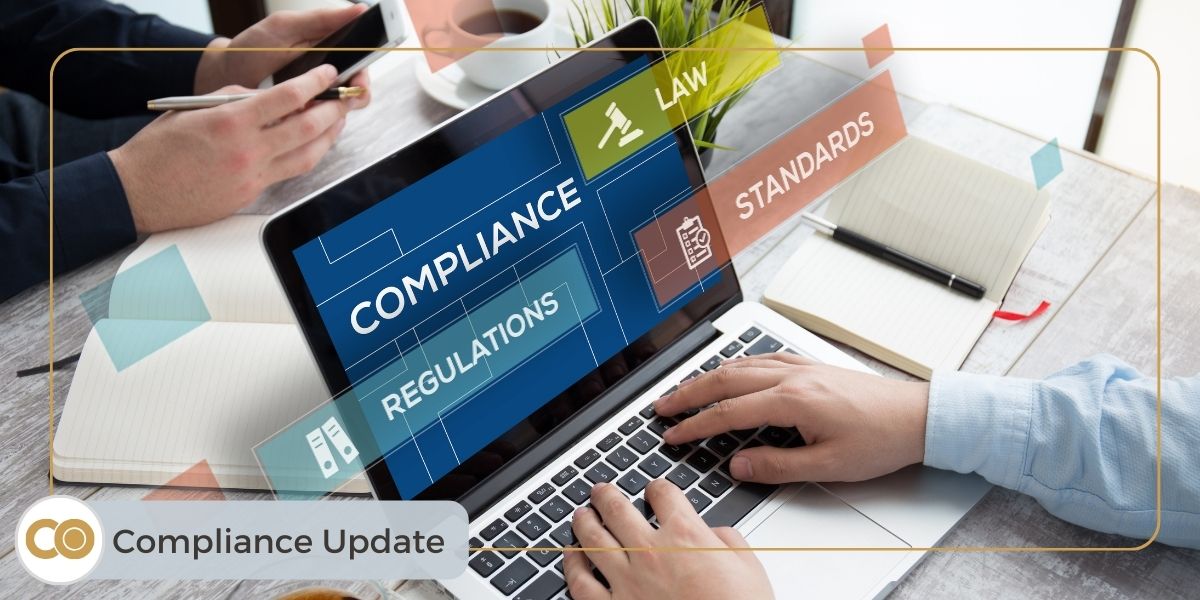Cannabis & Compliance: What California Employers Need to Know for 2024
December 15th, 2023 | 5 min. read

When it comes to cannabis legislation, California has always been a trailblazer.
Think about it:
- California stirred the pot when it became the first state to legalize medical marijuana under the Compassionate Use Act of 1996.
- Then, California was the fifth state to sanction recreational marijuana use with the passing of Proposition 64 – the Adult Use of Marijuana Act – on November 8, 2016.
- Now, effective January 1, 2024, California will become the seventh state to implement cannabis-related workplace protections, as outlined in Assembly Bill 2188 (AB 2188) and Senate Bill 700 (SB 700).
With 2024 quickly approaching, it’s high time for you to prepare for California’s new cannabis-related legislation to take full effect.
So, what do these new laws mean for employers in California? And how can you be sure that your business policies are compliant?
Here at Combined, we're here to help you navigate these budding changes. In this article, we'll hash out the specifics of AB 2188 and SB 700.
By the end of this quick read, you’ll be equipped with a clear strategy to keep your business on the right side of California’s new cannabis regulations.
What are California’s new cannabis laws?
California has once again positioned itself at the forefront of cannabis legislation with the introduction of two significant bills: AB 2188 and SB 700.
These new laws, set to take effect on January 1, 2024, represent a substantial shift in the state's approach to cannabis, particularly concerning employment and workplace rights.
AB 2188 and SB 700 are game-changing reforms that fundamentally reshape the intersection between cannabis use and the workplace. These bills collectively aim to balance the rights of employees who use cannabis off-duty with the need for employers to maintain safe and productive work environments.
What is Assembly Bill 2188 (AB 2188)?
AB 2188 introduces groundbreaking changes to California employment law, focusing on protecting off-duty cannabis use.
Here's a breakdown of the key aspects of AB 2188:
AB 2188 will expand the anti-discrimination provisions of Fair Employment and Housing Act (FEHA)
With the introduction of AB 2188, the Fair Employment and Housing Act will now include protection against discrimination based on an employee's cannabis use outside of work hours.
This change means that employers in California cannot make employment decisions — such as hiring, firing, or promoting — based on an applicant’s or an employee’s legal, off-duty cannabis use.
AB 2188 will require workplace drug and alcohol testing to control for at-work impairment
To comply, employers must update their drug and alcohol policies to align with AB 2188, attending to the identification of actual on-the-job impairment.
This involves moving away from traditional drug tests that simply detect cannabis metabolites, which remain present long after any effects have worn off, and implementing testing procedures that screen only for the presence of active THC.
The goal of this new testing method is to determine whether an employee is under the influence during work hours, affecting their ability to perform job duties safely and effectively. It is not, as traditional drug tests do, to identify a broader spectrum of cannabis use.
If employers want to avoid any infringement on employees' rights as protected under AB 2188, it is imperative for employers to ensure that their revised practices are not only compliant with this new legislation but also fair.
What is Senate Bill 700 (SB 700)?
Senate Bill 700 (SB 700) is another critical piece of legislation that complements AB 2188 in reshaping California's approach to cannabis in the workplace.
While AB 2188 safeguards employees' rights to off-duty cannabis use, SB 700 zeroes in on enhancing the privacy rights of job applicants in California, specifically regarding past cannabis use.
Here's a detailed look at the key provisions of SB 700:
SB 700 will prohibit employer inquiries about past cannabis use
SB 700 strictly prohibits employers from requesting information about an applicant’s history of cannabis use. This rule extends to all aspects of the hiring process, including application forms and interviews, with the intent to uphold AB 2188, prevent cannabis-related discrimination in employment, create a more inclusive and unbiased hiring process.
In response to SB 700, employers must revise their hiring practices. This includes eliminating any questions about past cannabis use from job applications and training hiring managers to steer clear of such topics during interviews.
Are there exceptions to AB 2188 and SB 700?
While AB 2188 introduces broad protections for off-duty cannabis use, it's important to note that there are three specific exceptions to these new requirements:
- AB 2188 does not extend its protections to employees working in the building and construction trades. This exception acknowledges the unique safety-sensitive nature of these industries.
- The legislation does not apply to positions that necessitate federal background checks or security clearances. In these cases, federal laws and regulations, which still classify cannabis as an illegal substance, take precedence over state law.
- AB 2188 does not override any state or federal laws mandating drug testing for controlled substances. Employers must continue to comply with these requirements where applicable, ensuring that their practices align with both state and federal regulations.
Will AB 2188 and SB 700 prevent employers from maintaining a drug-free workplace?
The introduction of AB 2188 and SB 700 raises a crucial question for employers: How will these new laws impact the enforcement of a drug-free workplace?
The short answer to this question: they won’t.
AB 2188 and SB 700 are specifically designed to protect employees' off-duty cannabis use. However, these laws do not hinder an employer's right to prohibit cannabis use, possession, or impairment in the workplace. Employers maintain the authority to enforce policies that ensure a drug-free environment during work hours.
Want more information on all of 2024's most critical compliance updates?
Download our free compliance guide or watch our latest recorded webinar hosted by legal expert, Jason T. Yu, Partner with the law offices of Snell and Wilmer, for a complete breakdown of California's recent regulation changes.
How to comply with California’s new cannabis laws
With the introduction of AB 2188 and SB 700, California employers face new compliance responsibilities.
To navigate these changes smoothly, here are five steps you can take to ensure compliance:
1. Update your drug and alcohol policies
Review your current policies to align them with the provisions of AB 2188. Focus on shifting from penalizing any cannabis use to specifically addressing impairment at work. This involves redefining what constitutes impairment and how it will be assessed.
2. Clarify off-duty use vs. workplace impairment
Amend your policies to clearly differentiate between permissible off-duty cannabis use and unacceptable impairment during work hours. Ensure that your employees understand this distinction to avoid confusion and maintain workplace safety.
3. Revise your testing procedures
Adapt your drug testing methods to comply with AB 2188. Move away from tests that detect cannabis metabolites and implement procedures that assess current impairment.
4. Review your hiring practices
In response to SB 700, thoroughly examine your job applications and hiring processes. Remove any inquiries about past cannabis use and train your HR team and hiring managers to avoid such questions during interviews.
5. Communicate changes to your employees
Clearly communicate these policy changes to your employees. Ensure they understand the new rules regarding cannabis use and the implications they have on your workplace.
Take the next steps to comply with California’s new cannabis laws
Now you know that California’s AB 2188 and SB 700 mark a new legislative chapter for how cannabis will be regulated with regard to employment practices.
While understanding these laws and the workplace policies they require is crucial to compliance, implementing them can be challenging:
How do you ensure your business policies align with these new laws? How do you balance new employee rights with workplace safety?
Here at Combined, we are here to answer any of your compliance questions.
But we're not just about providing you with essential information – we're also about finding you practical solutions. Our team of HR experts is equipped to guide you through these changes and make sure that, when January 1, 2024, hits, you have nothing to worry about!

|
Schedule a meeting – Let’s work together to put your business ahead of the compliance curve. |
This article is not intended to be exhaustive nor should any discussion or opinions be construed as legal advice. Readers should contact legal counsel for legal advice.
.png?width=1125&height=426&name=Your%20paragraph%20text%20(5).png)


